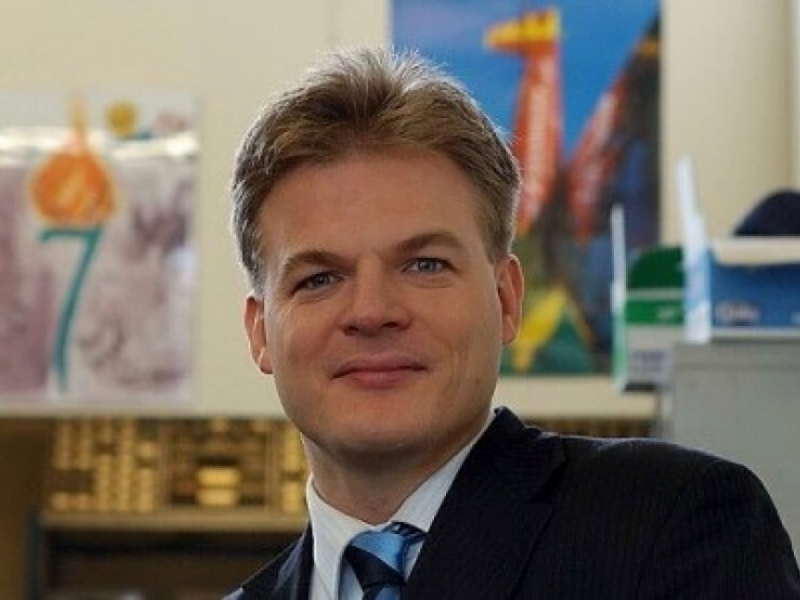The “positive” meetings with the Maltese government were a welcome change for Special Rapporteur Pieter Omtzigt during his visit to Malta last week but there was much to be done for Malta to fight corruption, he told The Shift.
Omtzigt said there was a “frank and constructive dialogue” with the government led by Robert Abela, which stood in stark contrast to how he was treated by Joseph Muscat who directly questioned his credibility leading to various attempts to undermine him, to the point where his Wikipedia page was tampered with – and the address led to MITA.
The fact that Abela retains a large number of ministers from the previous administration was not missed, but Omtzigt expressed hope for change. “Even though a large number of ministers are the same as in the last government I hope to see this good will translate into real actions.”
He told The Shift that the Muscat government had ignored almost all recommendations by the Venice Commission on strengthening the rule of law and installing checks and balances and reform of the justice system.
Further recommendations on fighting corruption made by the Group of States against Corruption (GRECO) and on fighting money laundering by MONEYVAL were also ignored, Omtzigt said.
“That is serious as both the government itself and the Parliamentary Assembly of the Council of Europe (PACE) asked for the Venice Commission report. Former prime minister Muscat promised to implement it all, and then hardly took any action for more than a year,” Omtzigt told The Shift.
Asked whether the commitment by the Home Affairs Minister that the Venice Commission recommendations would be implemented in weeks was realistic, Omtzigt said: “Yes, with enough commitment, but it will take more than a few weeks for full implementation; some reforms have resource and reorganisation implications that cannot be satisfied overnight. But it is still achievable in weeks; no more than a couple of months.”
But it was “very important” that the government made proposals and asked the Venice Commission for formal advice on proposed laws.
There is pressure for Abela to change tack. The Special Rapporteur pointed to major deals negotiated by Muscat’s administration that continue without consequence despite the evidence.
“It is quite astonishing to see that the Electrogas deal, which makes electricity in Malta very expensive for citizens and the privatisation of the hospitals have not had any consequences so far,” Omtzigt told The Shift.
He hit out at magisterial inquiries that never see the light of day. “Major corruption scandals in Malta are all subject to magisterial inquiries. Their purpose is (inter alia) to preserve evidence, yet they last so long that the sense of urgency is lost.”
Some of the expert reports cited in the Egrant findings outright state that other reports including for Magistrate Natasha Galea Sciberras (on kickbacks to Schembri) were ready – and that was in July 2018. Yet the findings remain under wraps.
Omtzigt referred to the scandal of traffic police corruption currently unfolding, saying it was “positive and encouraging” that this government acted on the information on the whistleblower.
“Yet, the real test will be when somebody blows the whistle on very high level corruption. That is when the government will have to act as well. Against the corruption and not against whistleblowers,” he said.
Yet the Maltese government has launched a witch hunt on the whistleblower in this case too, that led to 41 officers have been arrested over a scandal involving overtime abuse, fuel theft and the collection of ‘protection money.’
The Malta Independent reported that service members who were not part of the investigation being carried out by the Internal Affairs Unit, the Criminal Investigations Department (CID) and the Economic Crimes Unit (ECU), have approached a number of their colleagues and accused them of being the whistleblower.
Omtzigt said that effectively fighting this kind of crime, possibly with the help of other countries – as corruption and money laundering often also extends to other countries – was a real challenge for Malta. “But it will ultimately benefit the people of Malta.”
The Special Rapporteur remains convinced that Malta can achieve justice for Daphne Caruana Galizia, a journalist brutally killed in a car bomb close to her home on 16 October 2017.
On the second anniversary of her death, Omtzigt had said her legacy was yet to be secured. “That legacy meant convicting and punishing her killers and those who ordered her death, ending impunity for corruption and the climate of fear for journalists, and guaranteeing respect for the rule of law among the institutions and offices of State.”
Although revelations from the public inquiry into Caruana Galizia’s assassination and related court cases reveal the weakness of law enforcement agencies to the point of actual disregard of investigations necessary on those at the highest levels of government, as well as political interference in the investigation into her death, Omtzigt still has hope.
“With the right people in the right positions – starting with the police and reformed prosecution service – and constant, determined political will. It will be an uphill battle, but it is possible.”














